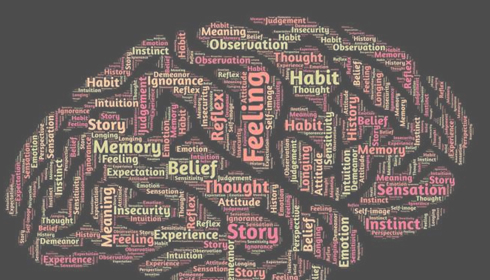
Study shows how the brain understands negative words
Arianna Zuanazzi at New York University and her colleagues released a groundbreaking study recently in the open-access journal PLOS Biology, which gives new information about how the brain handles negation, which is a big deal for linguistic research. Through the use of negated words, the study looks into how the brain shows how meaning changes over time.
Negation is the process of changing positive words into negative ones, like "good" to "not good." It is a difficult task for both natural and artificial cognitive systems. Studies have demonstrated that negated phrases frequently process more slowly and make more mistakes than affirmative phrases. Even so, the basic neural mechanisms are still a mystery. The goal of this project is to close that gap.
The researchers asked 78 people to participate in their study by reading and figuring out what both positive and negative word phrases on a screen meant. Some of these pairs were "good/bad," "not good/not bad," "happy/sad," and "not happy/not sad." On a scale from one (meaning very negatively) to ten (meaning very positively), the participants rated how they thought these words made them feel.
According to researchers, people needed more time to think about negatively spelled adjectives than positively spelled adjectives. Their views were also different. Tracking the cursor showed that people first thought that negated phrases meant positive things, but then changed their minds and thought they meant the opposite. This study shows how difficult it is for our minds to understand negation.
In a second, more complex experiment, people rated the meaning of positive and negative phrases once more. This time, the researchers used magnetoencephalography (MEG) to record the magnetic fields created by the brain's electrical activity. Through this method, the researchers were able to watch in real time how the brain processes denial.
The MEG results validated the findings from the behavioral studies. At first, the brain activity linked to negated adjectives looked a lot like that of positive adjectives, but the connections were weaker. As a result, this supports the idea that negation changes the meaning of words, but not completely. Saying something like "your coffee is not hot" makes the coffee appear cooler without actually being cold.
"Our time-resolved behavioral and neurophysiological data show that in a sentence like 'your coffee is not hot,' the negation ('not') reduces the meaning of the scalar adjective 'hot,'" said Zuanazzi. This means that negation cools your coffee, but it doesn't make it cold.
The study's results give a more complete picture of how denial works in the brain. The study is useful because it describes these small changes in language meaning that go beyond just how people process the meanings of individual words. This could potentially enhance the understanding of other intricate aspects of language and the process of creating and refining meaning within the mind.
In addition, the study could help make artificial intelligence better. Artificial neural networks today have a hard time dealing with the effects of denial in different contexts. This study, by revealing the brain processes that humans use to handle negation, could aid in the creation of more advanced AI language models that can better handle complex linguistic structures.
The people who wrote the study talk about how important this research is for neuroscience and language as a whole. They came to the conclusion that studying denial is a good way to learn about how the brain makes sense of things by putting them together.
This groundbreaking work not only advances understanding of language storage in the brain, but also creates new avenues for future research. Researchers can keep looking into how the brain handles the complexity of language by using advanced imaging methods like MEG. This could lead to major advances in both cognitive science and artificial intelligence.